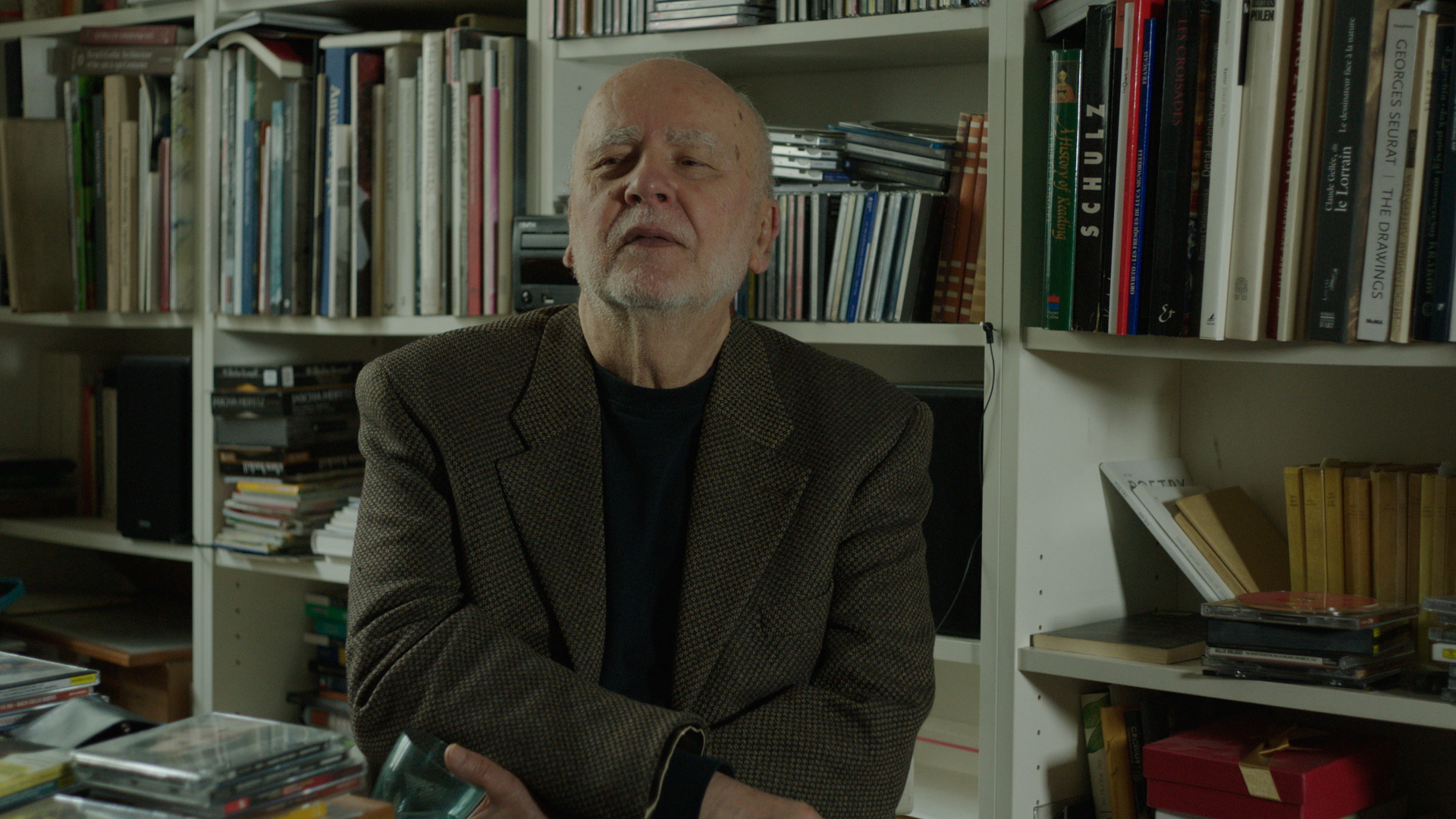NEXT STORY

Solidarity, Solitude
RELATED STORIES

NEXT STORY

Solidarity, Solitude
RELATED STORIES


|
Views | Duration | |
|---|---|---|---|
| 21. Anti-Semitism raises its ugly head | 59 | 02:30 | |
| 22. Circle of Young Writers collective is formed | 38 | 05:52 | |
| 23. The blossoming of Polish culture | 48 | 01:44 | |
| 24. Three decades of extraordinary culture | 50 | 00:56 | |
| 25. Writing is my element | 44 | 03:53 | |
| 26. Poetry is not theory | 41 | 03:35 | |
| 27. Paying the price of actively protesting against the system | 41 | 03:31 | |
| 28. Seduced by Warsaw's revolutionary spirit | 41 | 02:19 | |
| 29. Protest poetry and me | 36 | 05:05 | |
| 30. The sense of seclusion in Berlin | 36 | 02:24 |


To było roczne stypendium. W sumie zostałem w Berlinie dwa lata, potem nawet trochę więcej niż dwa lata. I doskonale pamiętam pierwsze tygodnie w Berlinie, kiedy właściwie cierpiałem bardzo, bo strasznie mi brakowało tego otoczenia opozycyjnego, z którym się utożsamiłem w sensie właśnie przyjaźni, w sensie przynależności i nawet to może śmieszne – już kiedyś to mówiłem, że słyszałem takie charakterystyczne głosy moich znajomych. Brakowało mi tych głosów. Nagle wszyscy mówili po niemiecku w Berlinie. Na przykład... no nawet niekoniecznie... Jacek Woźniakowski, który miał bardzo... który był wybitnym intelektualistą katolickim, związanym z Tygodnikiem Powszechnym, a mówił tak jak nikt inny. I nagle jestem w Berlinie, brakuje mi tego głosu. Jan Błoński, który był bardzo wybitnym krytykiem literackim – ten już zupełnie miał głos bardzo indywidualny, bardzo charakterystyczny. Brakuje mi tego głosu. Nagle te moje głosy zostały w Polsce, w Krakowie. Brakuje mi Adama Michnika, oczywiście, który z jego jąkaniem się... Brakuje mi jąkania się Adama w Berlinie. No ale jakoś to nie trwało bardzo długo, po jakimś czasie się... pogodziłem się z tym i w sumie wydaje mi się, że ten pobyt berliński był dla mnie dobry, bo nauczyłem się żyć w izolacji od... od tego głównego nurtu polskiego, co... czego potrzebowałem dla mojego pisania. Nie dla mojego samopoczucia, tylko dla... dla... musiałem jakby ugruntować to, co piszę. Nie w takiej bliskości z innymi, tylko w takim odosobnieniu. Myślę, że pisanie w ogóle jest... bierze się z pewnej może niekoniecznie samotności, ale z pewnego odosobnienia.
It was a grant for one year. I stayed in Berlin for two years, in fact I was there for a little more than two years. I can recall those first weeks in Berlin perfectly and how I suffered hugely because I missed that environment of the opposition with which I identified through friendships and a sense of belonging. This may seem funny, but I've mentioned this before that I heard voices that were specific to my friends. I missed those voices. Suddenly, everyone was talking German in Berlin. For instance, Jacek Woźniakowski, who was a very eminent Catholic intellectual associated with Tygodnik Powszechny and who was unique in his opinions. Suddenly, I found myself in Berlin where I missed voices like his. Jan Błoński, who was an eminent literary critic and who had very distinct views; I missed his voice, too. Suddenly, all of 'my' voices were back in Poland, in Kraków. I miss Adam Michnik, of course, with his stammer... I miss his stammer in Berlin. But this didn't last long and after a while, I came to terms with my situation and I think my time in Berlin did me good because I learned what it was to live isolated from that main Polish trend which I'd needed for my writing. It wasn't for my own sense of well-being, but I needed to ground my writing not in the proximity of others but in this type of seclusion. I think that in general, writing comes not necessarily from isolation but from a certain kind of seclusion.
Adam Zagajewski (1945-2021) was a Polish poet, novelist, translator and essayist. He was awarded the 2004 Neustadt International Prize for Literature, the 2016 Griffin Poetry Prize Lifetime Recognition Award and the 2017 Princess of Asturias Award for Literature. He is considered as one of the leading poets of the Generation of '68 or the Polish New Wave (Polish: Nowa fala) and is one of Poland's most prominent contemporary poets.
Title: The sense of seclusion in Berlin
Listeners: Andrzej Wolski
Film director and documentary maker, Andrzej Wolski has made around 40 films since 1982 for French television, the BBC, TVP and other TV networks. He specializes in portraits and in historical films. Films that he has directed or written the screenplay for include Kultura, which he co-directed with Agnieszka Holland, and KOR which presents the history of the Worker’s Defence Committee as told by its members. Andrzej Wolski has received many awards for his work, including the UNESCO Grand Prix at the Festival du Film d’Art.
Tags: Jacek Woźniakowski, Jan Błoński, Adam Michnik
Duration: 2 minutes, 24 seconds
Date story recorded: March 2018
Date story went live: 25 April 2019